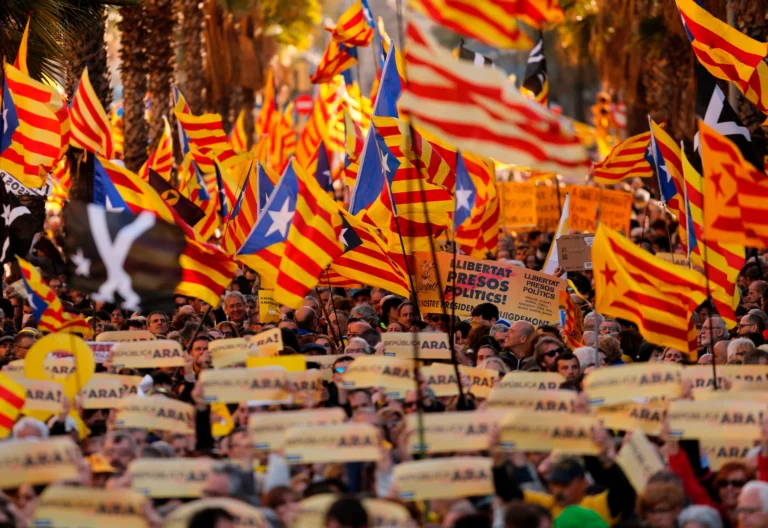Madrid, Spain – In a major political development that could reshuffle the cards in the Spanish political landscape, the United for Catalonia (JxCat) party today overwhelmingly endorsed its leadership’s decision to break away from the Spanish Socialist Workers’ Party (PSOE).
Which forms the backbone of Prime Minister Pedro Sanchez’s government.
During the internal vote, in which participation reached 66.29%, 86.98% of party members voted in favor of secession.
In contrast, 10.22% were against it, while 2.8% declined to state their position.
A decisive turning point
This decision, which comes with broad support from the party’s grassroots base,
is considered a crucial turning point in the current legislative session.
It portends a period of profound political turmoil in both Madrid and Barcelona.
The party leadership, headed by Carles Puigdemont and its Secretary General Jordi Turull,
stressed that the next phase “requires actions, not words.”
Accusing Sanchez’s government of failing to fulfill its previous commitments to Catalonia.
The risk of losing crucial support
With the split of JxCat, Sanchez’s government,
which relies on a very fragile parliamentary majority,
risks losing the crucial support that enabled it to pass key legislation.
This development puts Sanchez in front of the tough rule of numbers in the House of Representatives,
where any vote could become a test of his government’s survival.
But the crisis goes beyond the parliamentary aspect; the division is
expected to have repercussions on sensitive regional and economic issues.
This includes managing the transfer of powers to the regions, fiscal policy,
and the recognition of the Catalan language in European institutions.
Warnings
Political circles warn that the widening gap between Madrid and Barcelona
could reignite political and social tensions.
This makes it difficult to maintain a stable balance between national and regional demands.
In the coming days, attention will turn to the anticipated budget votes,
which will constitute the first real test of the post-Brexit era.
With mounting pressure from the opposition to call for early elections,
the Spanish political scene is entering a critical and unprecedented phase of political weakness.
Every decision in parliament can turn into a vote of confidence in the government’s survival.















